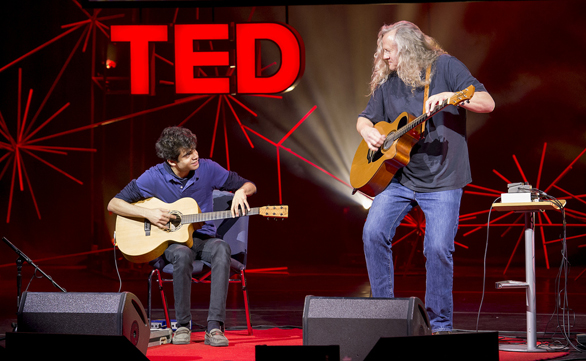
As a young musician in Pakistan, TED Fellow Usman Riaz learned to play in the percussive guitar style by watching YouTube videos of Kaki King and her influences, including the founder of the technique, Preston Reed. Now, Riaz is among the artists and musicians calling for Pakistan to lift its seven-month-old ban on YouTube.
 Usman Riaz + Preston Reed: A young guitarist meets his hero
Talking yesterday to the Express Tribune, Riaz said:
Usman Riaz + Preston Reed: A young guitarist meets his hero
Talking yesterday to the Express Tribune, Riaz said:
“Everything that I have learnt and achieved is a direct result of having a close connection to the online realm,” says Riaz. “YouTube [could] be the reason I became a TED Fellow. I would have never had a chance to speak on the TED stage or perform with Preston Reed — the man whose videos I used to watch on YouTube when I first picked up the guitar — if I didn’t have access to YouTube.”
Usman and friends have created a Facebook page called YouTube Aloud to gather information and fight the ban.
In September 2012, YouTube was banned in Pakistan during the furor over the film Innocence of Muslims, which many believed to be insulting to the prophet Mohammed. In early January, Pakistan’s government suggested it would lift the ban after installing filters, but the opening lasted about three hours before being shut again.
Riaz’s message: YouTube is too valuable for learning to be closed over one video. As he puts it in the Express Tribune: “Does it make sense to burn down an entire library just because you don’t agree with the contents of one of its books?”
Comments (3)
Pingback: Wizmo Blog » Blog Archive » Lift the ban on YouTube: Artists in Pakistan speak out